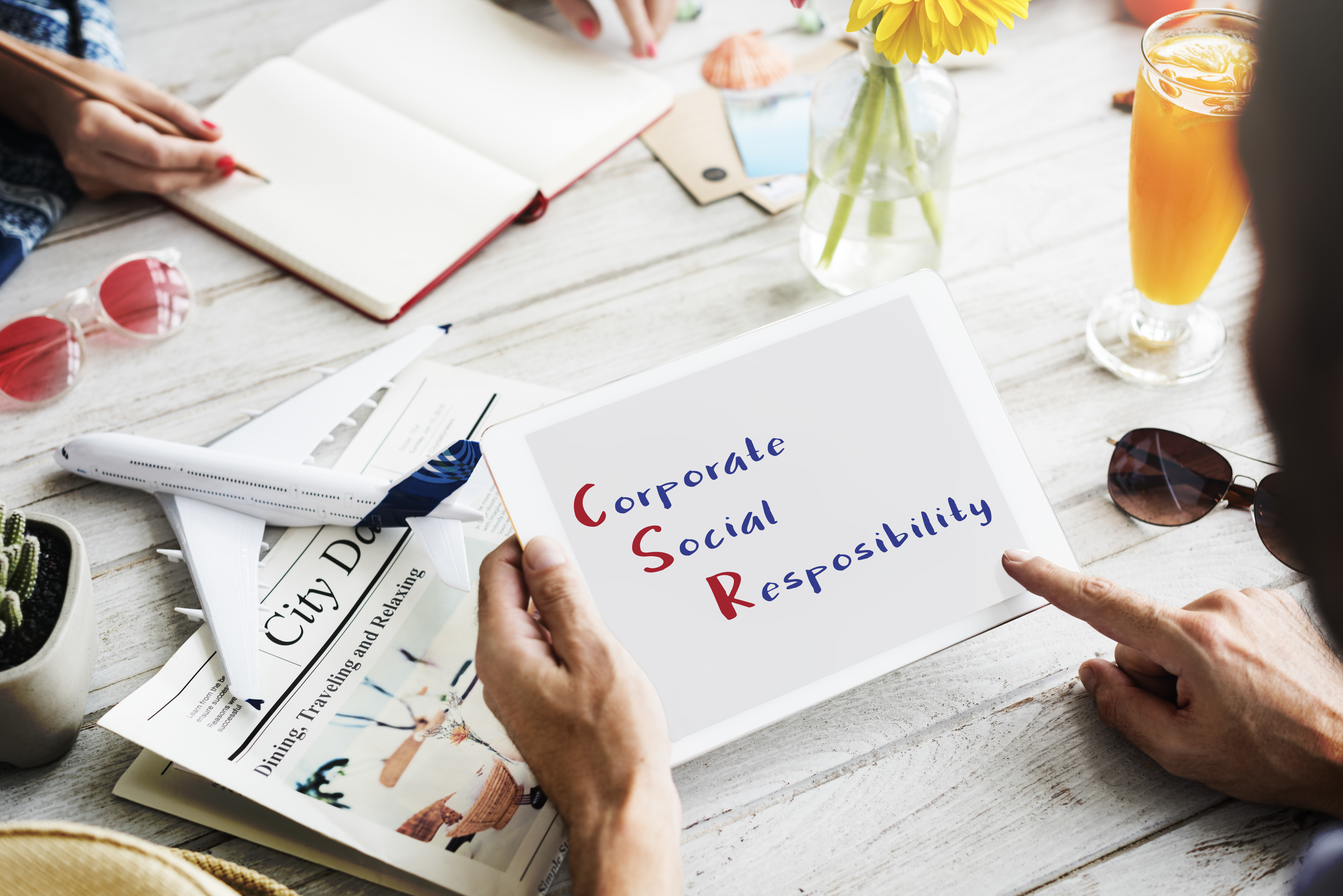What is a Social Responsible Company?
First of all, it is important to understand the Corporate Social Responsibility (CSR) concept.
Corporate Social Responsibility is a management concept whereby companies integrate social and environmental concerns in their business operations and interactions with their stakeholders.
CSR is generally understood as being the way through which a company achieves a balance of economic, environmental, and social imperatives (“Triple-Bottom-Line- Approach”), while at the same time addressing the expectations of shareholders and stakeholders. In this sense, it is important to draw a distinction between CSR, which can be a strategic business management concept, and charity, sponsorships, or philanthropy. Even though the latter can also make a valuable contribution to poverty reduction, will directly enhance the reputation of a company and strengthen its brand, the concept of CSR clearly goes beyond that. [1]
Corporate Social Responsibility can be defined into four categories:
Environmental: aims to reduce pollution and greenhouse gas emissions and the sustainable use of natural resources.
Human Rights: involves providing fair labor practices, fair trade practices, and disavowing child labor.
Philanthropic: can include things such as funding educational programs, supporting health initiatives, donating to causes, and supporting community beautification projects.
Economic: involves improving the firm’s business operation while participating in sustainable practices. The end goal is not to simply maximize profits, but positively impact the environment, people, and society.
What are the benefits of Corporate Social Responsibility?
With Corporate Social Responsibility, companies become  more sustainable due to operational efficiency, minimize environmental impacts, inspire innovation and establish good reputations.
more sustainable due to operational efficiency, minimize environmental impacts, inspire innovation and establish good reputations.
Millennials make up around 30% of the world’s population and are arguably the most concerned generation when it comes to environmental sustainability and social issues. A recent study showed that 87% of millennials “believe that companies should address urgent social and environmental issues.” [2] Millennials and next generations believe companies should invest in improving society and look for solutions that assist in those improvements. For them, socially responsible companies are even more important.
So, due to awareness increase on this kind of topics by following Corporate Social Responsibility companies will also attract top talent and positive attention, which could be also profitable for their business.
In today’s society, corporate social responsibility is no longer a nice-to-have; it’s a must-have. Let’s see why:
CSR increases employee engagement;
CSR supports local and global communities;
Contributes to the United Nations’ 17 Sustainable Development Goals;
Increases investment opportunities;
Presents press opportunities;
Increases customer retention and loyalty;
CSR improves employer branding;
CSR improves bottom-line financials.
Finally, corporate social responsibility initiatives, by their nature, force business leaders to examine practices related to how they hire and manage employees, source products or components, and deliver value to customers. This reflection can often lead to innovative and groundbreaking solutions that help a company act in a more socially responsible way and increase profits.
Examples of corporate social responsibility
There are many responsible businesses out there today implementing innovative initiatives and making positive impacts. Here are some examples from pretty well-known companies:
The Walt Disney Company: Social impact relating to children
Their list of CSR programs is extensive, but their signature initiatives relate to social impact and the well-being of children. They do so by donating to nonprofits focusing on children and families as well as their well-known hospital visits and wish-granting programs. In 2019, Disney donated $338.2 million dollars to these causes and currently works with 750 hospitals worldwide. [3]
BNP Paribas: Employee volunteering & giving
One of the central pillars of BNP Paribas’ corporate social responsibility strategy is employee engagement and solidarity. In order to develop this pillar, they give employees up to 16 hours (or 2 working days) to use for volunteer initiatives. They have now reached 40% employee participation and have solidified their position as a socially responsible player in the financial industry, all while integrating employee purpose and aspirations into their company’s fabric. [3]
Johnson & Johnson: reducing their impact on the planet
Their initiatives range from leveraging the power of the wind to providing safe water to communities around the world. Their purchase of a privately-owned energy supplier in the Texas Panhandle allowed the company to reduce pollution while providing a renewable, economical alternative to electricity. The company continues to seek out renewable energy options with the goal of having 100% of its energy needs from renewable sources by 2025. [4]
With ever-increasing globalization, CSR has become an important and prevalent theme around the world. It is commanding more space in the media; consumer organizations are increasingly demanding information on production conditions and routes to market; nongovernmental organizations (NGOs) and trade unions are approaching companies with demands regarding commitment to society; suppliers are increasingly being met with CSR engagement demands from their corporate customers, and politicians have discovered CSR as an area for policy-making. [5]
CSR is also important regarding the reputation of a company, including its ability to secure and maintain its place in the supply chain. Apart from ethical reasons, there is therefore also a business case for companies to be aware of CSR developments and trends.
In conclusion, companies need to find a project, charity, or CSR strategy that is aligned to their core values and ethos. Socially responsible companies cultivate positive brand recognition, increase customer loyalty, and attract top-tier employees.
Lea Nogueira Lima
Project Manager at Wysupp
15 November 2021
Sources:
1. https://www.unido.org/
2. https://sumas.ch/millennials-and-sustainability/
3. https://alayagood.com/
4. https://digitalmarketinginstitute.com/
5. http://csrforall.eu/

